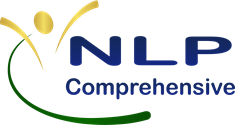A client told me today “I’m becoming increasingly, keenly aware of the concept of rapport … and how my responses control and influence every situation.”
“Really?” I ask.
She says “Since the NLP workshop, I’ve been sitting in meetings, practicing looking around, changing my body posture, watching my facial expression, aligning with the ideas being spoken. Align, align, align. And now I’m noticing that lately when people talk — they’re looking to ME for my response, my input. This has all happened since I began practicing rapport.”
“Wow” I say.
She goes on “I was recently discussing an idea with a colleague — one that we both wanted to happen. The ‘boss’ who would need to agree is a bit of the contentious, emotional type — generally resistant to ideas that aren’t hers. So I shelved my idea .. and focused simply on building rapport with her, with the intention of my idea in the back of my mind. Then one day I asked “I wonder what you think about this idea?” She immediately said “I knew you were going to say that … and I think it’s a terrific idea!” This has been a theme with my boss, one where there was always this background tension and now, that’s totally gone. All a result of this one change I’ve made.”
These are golden moments.
I often find myself surprised and amazed by how the tiny changes on our part, ripple into big change. The simple concept of “tuning in” and building rapport was not invented by NLP, but has been beautifully described in detail by those who studied great communicators. I love the description of rapport as “opening the channel between people, just like you would between any communication devices, like a computer or a fax. If one side is ‘turned off’ the communication doesn’t go two ways.
I find that in my own life, anything I want to do or accomplish (that involves others) happens sooner, better and more easily when I take the time to build unconscious rapport with the people around me — especially when the intention is not simply to have my own way, but to open the connection.
I’m wondering how the simple idea of practicing unconscious rapport could change someone in your life today?
How long has it been since you’ve consciously thought about doing it?
Could be a very fun and interesting weekend.
Rapport is one of the basic skills taught in the beginning of every credible NLP course. You can learn more about it right now through the “Fundamentals of NLP Home Study Guide” and in Section 1 of “The NLP Portable Practitioner Training”
Lisa Jackson is an executive coach, facilitator and trainer, and an NLP Master Practitioner. Find out more about the work she and her partner do – They have a wonderful course coming up that really gives you an experience of the power of these tools in your kit:
Research shows that even with sophisticated methodologies and approaches to change and performance improvement, approximately 75% of intentional efforts to improve business results fail to deliver on the expected ROI. The #1 complaint we hear from clients: “We can’t implement our strategies as effectively as we’d like, and our people aren’t accountable.” And, as technology grows more complex, the world accelerates in speed, and people are increasingly seeking meaning at work, efforts to quickly align diverse teams and systems with changing strategies and priorities are more critical than ever.
